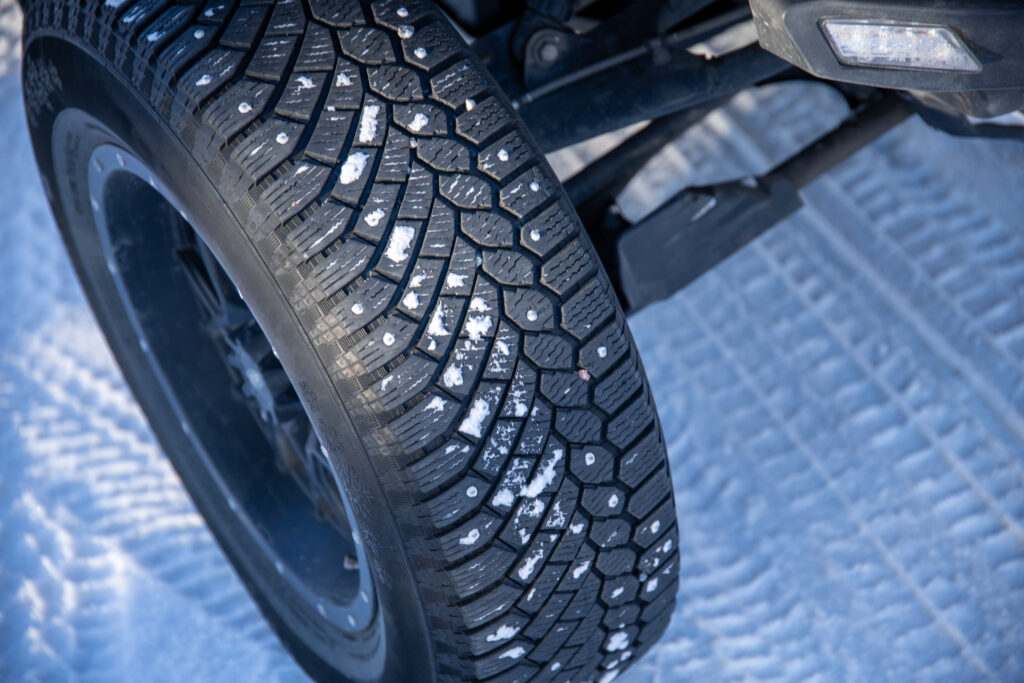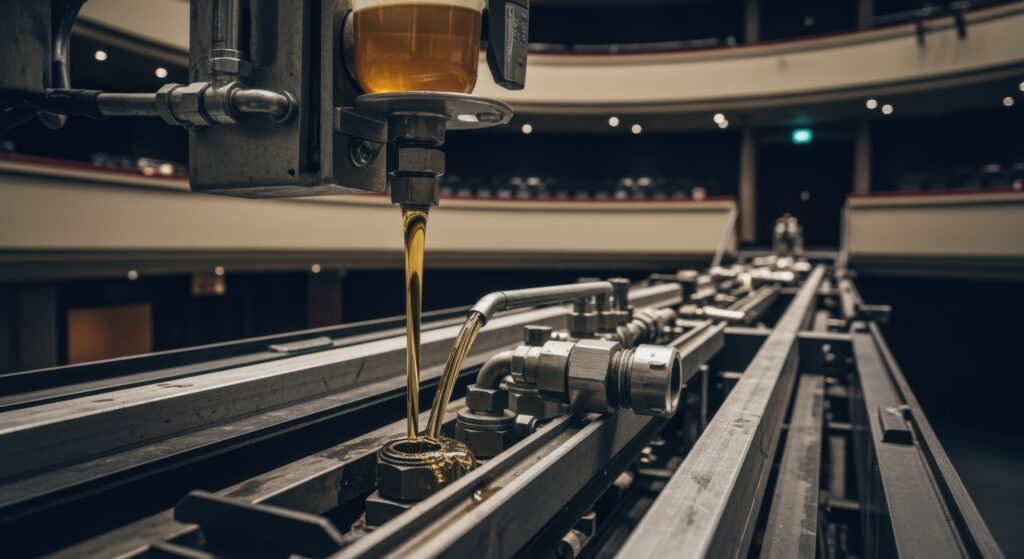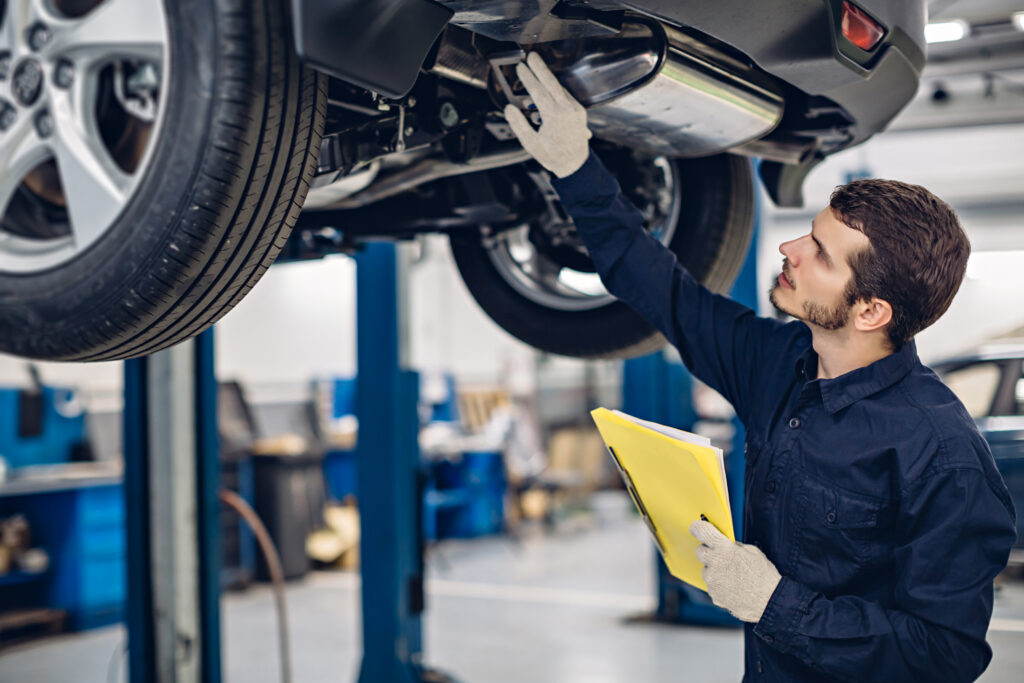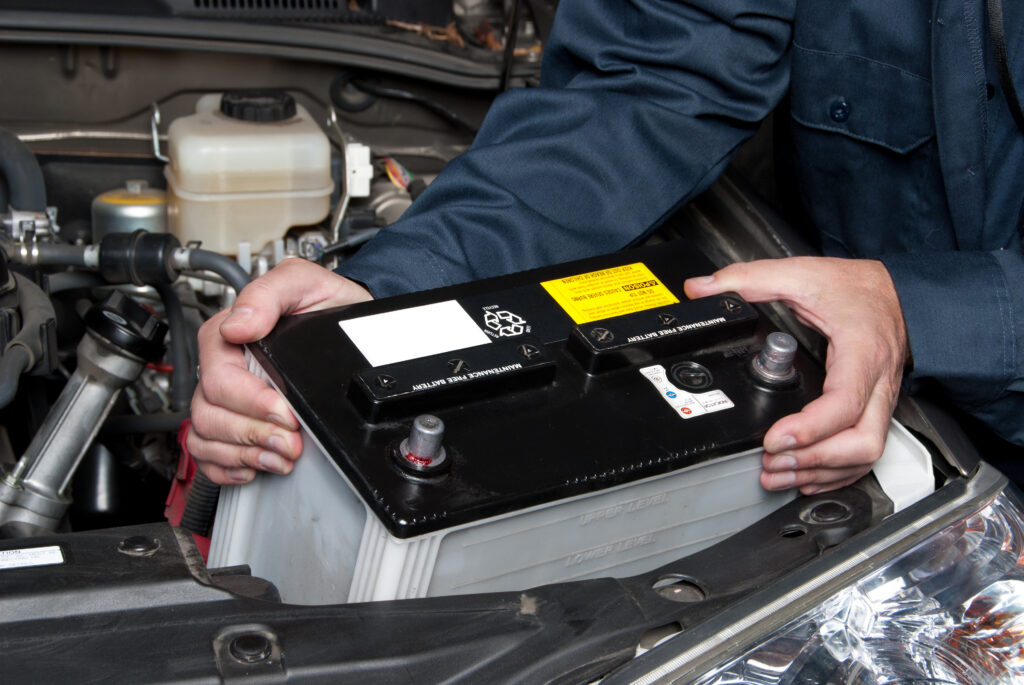If you’re considering buying a hybrid vehicle (or already have one parked in your driveway) but aren’t sure how you’ll maintain it, don’t worry–it’s not as difficult as you might think. Here are a few maintenance tips for keeping your hybrid vehicle in tip-top shape!
HYBRIDS VS. GAS OR ELECTRIC-POWERED CARS
Before we get into the details, let’s take a minute and look more closely at what a hybrid vehicle is. By definition, a hybrid vehicle is a combination of a gasoline-powered car and an electric-powered car–which means it has the features and benefits of both. Hybrid vehicles still have a traditional gasoline-powered engine. Still, when you’re driving slowly, or conditions are particularly easy, your car will let the electricity kick in—which means you won’t use as much gas.
Here are a few key points to help clear up some common concerns about owning a hybrid vehicle.
- You’ll still be driving a gasoline engine. The electric motor under a hybrid’s hood works in tandem with a gasoline engine. What this means for you is that traditional maintenance requirements like changing the oil and replacing the timing belt are still very much a part of the picture. Hybrid cars require more frequent coolant checks due to the additional heat caused by the battery pack. Following the manufacturer’s schedule and relying on an experienced technician are still your go-to resources for hybrid vehicle routine maintenance.
- Maintain your electric motor. While it’s true that your hybrid car will have an electric motor, the moving parts are minimal. The parts that may wear out are not difficult for an experienced technician to replace — as with any vehicle, sticking with a proactive maintenance schedule is key to your vehicle’s longevity and lower costs for you.
- Battery replacement isn’t common. The typical hybrid battery doesn’t need replacing until it passes the 150,000-mile mark. The battery in your gasoline-powered car is changed more frequently than the battery in a hybrid car.
Learn more about hybrid vehicles
MAINTAINING YOUR HYBRID
This is all excellent news for your wallet and the environment, but what about vehicle maintenance and general care? Are hybrid vehicles more difficult to deal with than your average gas-guzzler? Here are a few tips that prove the answer is no.
TIP #1: LEARN ABOUT YOUR CAR.
In truth, maintaining a hybrid vehicle isn’t all that complicated. You’ll still have to do “regular car stuff,” like monitoring tire pressure and refilling washer fluid. Do your research so you can learn the differences between your vehicle and a traditional gas-powered car.
TIP #2: DON’T GO IN ALONE.
The electrical charge in a hybrid vehicle is enough to be dangerous or even life-threatening, so don’t go poking around the car’s inner workings. Instead, take your vehicle to maintenance experts who have proven experience working with hybrids.
TIP #3: KEEP AN EYE ON BOTH BATTERIES.
Hybrid vehicles have two batteries: the hybrid battery that handles the car’s electrical charge and a traditional 12-volt battery like you’d expect to see in a gas-powered car. Both batteries need to be maintained to keep your hybrid vehicle safe, reliable, and cost-effective.
HYBRID MAINTENANCE COSTS
Hybrid and regular cars have many differences, but they share more than they differ. Hybrids use less gas, but they still use an internal combustion engine. Like any car, a hybrid needs regular maintenance to keep it running at its best and occasionally needs a replacement part. Most of the standard maintenance of a hybrid is getting oil changes on time. And like any car, they occasionally need a new battery to replace a bad one.
OIL CHANGES
Just like a regular car, a hybrid needs oil changes at regular intervals. The number of miles to wait between oil changes varies with the specific model. Like most cars, it is generally recommended by the manufacturer to change the oil every 3,000 miles for as long as you have the vehicle. If you use conventional oil (natural) in your hybrid, the 3,000-mile rule may be a smart one to remember.
However, by switching to synthetic oil, you can increase the distance between oil changes to about 5,000 to 7,000 miles. Getting an oil change with natural oil will cost anywhere from $20 to $40. If you get synthetic oil, expect to pay around $40 to $70 per oil change.
The oil lasts longer in hybrid vehicles than it does in regular ones. When you drive at a low speed, your hybrid car will turn off power to the engine. This allows the engine to go longer without needing to be lubricated, stretching out the life of the oil in your vehicle. If you haven’t gone 5,000 to 7,000 miles after six months, get the oil changed at that point in time. By changing the oil whenever it needs to be changed, you extend the miles your car can go.
Learn more about proactive maintenance
HYBRID BATTERIES
Like conventional cars, hybrid cars will eventually need to have their battery replaced. In a hybrid vehicle, it’s the battery that makes the car what it is. While hybrid batteries will last a long time, they tend to be extremely expensive. Expect the battery to last your car about 100,000 miles, or about eight years. While a conventional battery costs just a couple of hundred dollars, you can expect to pay from $1,000 to $8,000 for a new hybrid battery. While this is an enormous range of prices, your exact price will have a lot to do with your vehicle’s make and model and the battery age.
Why does a hybrid battery cost so much more? These batteries have to supply a higher level of power to the vehicle, supplying some of the power that the engine would have provided in a regular car. The hybrid battery is rechargeable, so it is unnecessary to replace it because it runs out of power once.
OTHER MAINTENANCE
Like regular cars, there are assorted things that must be replaced as a regular part of wear and tear to the car. The light bulbs will eventually need to be replaced, and these are no different from those in a regular car. You will also have to replace air filters and have the fluid replaced in the air conditioner. There is also window washer fluid to refill and tires to replace as needed. None of these maintenance items will cost more for a hybrid than it does for a regular car. Each of them can be done for a few hundred dollars or less.
3 DIFFERENCES BETWEEN MAINTAINING HYBRIDS VS. NON-HYBRID VEHICLES
There’s never been a better time to purchase a hybrid than the present, and you might find yourself contemplating a hybrid, wondering what the maintenance differences are between a hybrid and a fuel car. The team at Naylor’s Auto Repair has been working with hybrid vehicles since they first came to the market, and we’ve put together this list so you can see, at a glance, some of the major differences to hybrid vehicle maintenance to help you learn more about the long-term benefits of owning a hybrid:
1. THEY HAVE EXTENDED BRAKE PAD LIFE
Modern hybrids are equipped with a regenerative braking feature. Because of this feature, a hybrid’s brakes experience less friction and heat, the primary contributor to brake pad wear. If you find yourself in stop-and-go traffic on a consistent basis, this feature is an incredible benefit for you.
2. THEY NEED FEWER OIL CHANGES
An electronic engine experiences less wear and tear than a fuel engine. For a hybrid driver, it means there is less chance of engine failure and extended time between necessary oil changes. Depending on your driving style and driving frequencies, you could go between 5,000 to 10,000 miles between oil changes. Along with the monetary savings, it’s nice not to schedule oil changes as often. If you really miss this opportunity to see your favorite mechanic, you’re always welcome to stop by the shop just to say hi!
3. THEY DON’T REQUIRE ONGOING SYSTEM MAINTENANCE
Most hybrid vehicles aren’t going to require any system maintenance on the hybrid components. The gasoline components may need some, but because those parts are less active than a traditional car, you’ll find that they need much less attention. While this might be considered a difference versus standard maintenance, the key takeaway is that a hybrid will not require any special maintenance on those specific components.
WHAT DO WARRANTIES COVER?
The majority of hybrids include warranties that cover the hybrid system for anywhere between 8 to 10 years. The specifics that your warranty covers is entirely dependent on the manufacturer. Still, you can typically expect your warranty to cover hybrid-related components in addition to the traditional coverage types (basic, powertrain, and so forth). The only engine component that is not subject to this is the battery, which will need to be replaced after a specific number of charges.
Chat with Hybrid Specialists in Boise
MAINTAINING YOUR HYBRID VEHICLE Long-Term
Let’s face it; car maintenance is much easier said than done. But maintaining any vehicle is critical if you plan to own it for the long run; this is especially true when it comes to hybrid cars. If you are going to keep your hybrid running smoothly and reliably beyond the warranty, it is critical that you maintain your:
- Transmission Fluid
- Brake Fluid
- Hybrid Battery
Maintaining these three parts of your hybrid will cost much less than if you don’t give them proper care and eventually are forced to replace the parts. Here’s what we mean:
TRANSMISSION FLUID
Every 50,000 miles, your hybrid vehicle’s transmission fluid should be replaced. Although this fluid does not break down as quickly as it does in a gas-powered car, the fluid does become contaminated with iron oxide over time. When this occurs, it can cause severe damage to your electric motor and result in expensive part replacements.
A hybrid transmission can cost around $11,000 to replace, while frequent transmission fluid changes, which prolong the life of your transmission, cost around $115.
BRAKE FLUID
Flushing your hybrid’s brake fluid regularly plays a crucial part in avoiding an expensive part of failure. If your brake fluid is never replaced, the linear valve, which plays a critical role in the wheel alignment, will become corroded and, over time, leave your vehicle undrivable.
HYBRID BATTERY
A hybrid’s battery is designed to last the length of the car’s life if it is properly maintained. The problem is, most dealerships do not equip you with the tools to maintain your battery. For the most part, a dealership will only be able to assist you once your battery has failed. Naylor’s Auto Repair, on the other hand, has the equipment to help you prevent battery failure and ensure a long life for your hybrid battery.
If you bring your hybrid in for battery servicing at or before 60,000 miles, we can evaluate and rebalance your battery’s modules, preparing it for the second half of its life.
Full-Service Hybrid Maintenance in Boise
Are you looking for more maintenance tips? Need your hybrid car serviced? We are hybrid specialists serving the Treasure Valley. Contact Naylor’s today!





